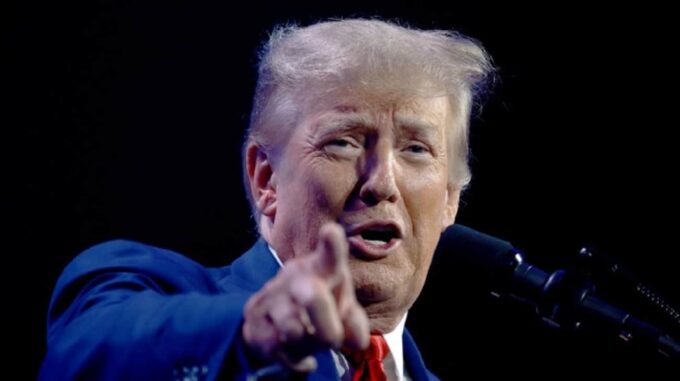Trump announces a large-scale ban on the entry of citizens from 12 countries, tightening restrictions for an additional seven states

In an unexpected and highly controversial move, U.S. President Donald Trump announced the introduction of new restrictions regarding immigration policy. According to reputable sources, including CNN citing official administration sources, the United States has banned entry for citizens of 12 countries, and has implemented partial restrictions for seven more nations. This decision has become a hot topic, sparking numerous discussions among politicians and the public, as it affects tens of thousands of people who planned or intended to visit the country. The restrictions, as reported, concern citizens from Afghanistan, Myanmar (often referred to as Burma), Chad, the Republic of Congo, Equatorial Guinea, Eritrea, Haiti, Iran, Libya, Somalia, Sudan, and Yemen. According to sources within the presidential administration, the primary reason for implementing such measures is the presence of significant risks to the country's national security. The government emphasizes that these limitations will only affect specific categories of citizens, particularly those who lack legal grounds to stay in the U.S. Exceptions are provided for lawful permanent residents, holders of valid visas, representatives of certain visa categories, and those whose entry aligns with U.S. national interests. Diplomatic and civil society circles respond even more sharply to the decision. According to White House officials, this move was made after a series of events highlighting security threats. Notably, the decision came in the context of the recent anti-Semitic attack in Colorado. An administration spokesperson stated that this incident and its aftermath expedited the process of reaching the final decision on the ban, which had been previously discussed during political debates. Regarding the countries subject to partial restrictions, these include Burundi, Cuba, Laos, Sierra Leone, Togo, Turkmenistan, and Venezuela. Officials say that restrictions on these nations aim to reduce illegal migration and protect national interests, while still allowing for exemptions for certain categories of individuals. Overall, the document provides for exceptions, including those holding legal permanent resident status or certain permits and visas. However, questions arise about the rights and prospects of citizens already in legalization processes or planning visits to the country. Experts note that these restrictions could significantly impact international relations and the U.S. image globally. Justifying the decision, a White House representative emphasizes that the main goal is to secure the country from potential threats. President Trump hastily signed the relevant executive order after last week's anti-Semitic attack in Colorado. However, analysts point out that such stringent immigration policies are not new to Trump's administration, which has previously attempted to implement measures aimed at restricting entry from certain countries, often based on security risk assessments. Additionally, ahead of Trump's order, the administration decided to rescind temporary legal status for over half a million citizens from Cuba, Haiti, Nicaragua, and Venezuela. This move opens the door for possible deportations. According to The Washington Post, the administration is developing a large-scale plan to return these nationals to their home countries — with estimates even mentioning around one million deportations per year. In light of domestic political challenges, President Trump reaffirmed his commitment to strict immigration policies, speaking in April about the need for “bold justice” and a more restrained approach to controlling the nation's external borders. This decision has sparked wide debate within society and political circles, challenging the balance between security and humanitarian aspects of U.S. immigration policy. Overall, this step indicates a further shift toward a nationalist course under the Trump administration and creates a new twilight zone in the U.S.’s external relations with certain countries. While supporters of this approach claim it’s necessary to enhance security, opponents criticize it for being undemocratic and potentially discriminatory. How the situation will develop in the coming months remains to be seen, but undoubtedly, this move will become one of the main topics of political debate in the U.S. and beyond.

